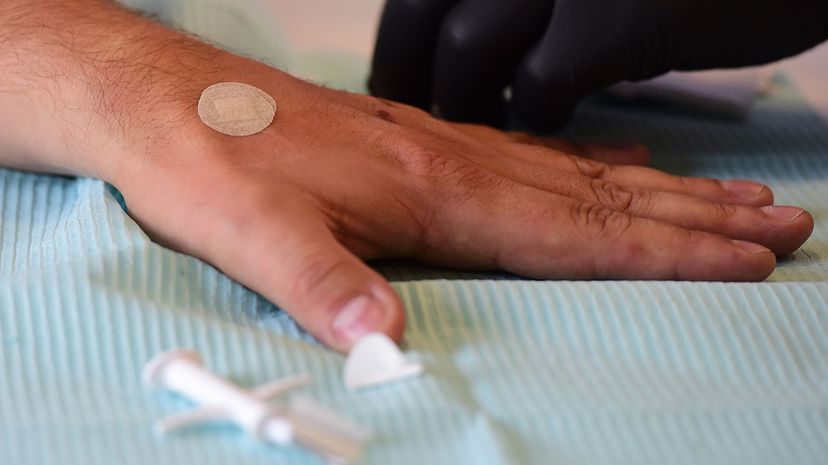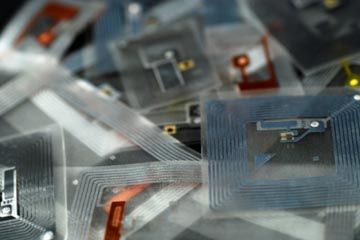
Employees at Three Square Market, a vending services company that makes micro markets, will soon have the opportunity to become cyborgs.
Starting on Aug. 1, 2017, workers can opt in to getting a special microchip surgically implanted under their skin between the thumb and forefinger. The implant will take mere seconds, says the company's blog post, and it will allow employees to make purchases from the break room micro market, essentially a cluster of self-service vending machines and kiosks. Employees with the implant also will be able to open electronically locked doors and access computers without having to type a password.
Advertisement
The company is partnering with a Swedish firm called BioHax International. The tech itself is a simple RFID chip about the size of a grain of rice. This tiny chip can hold a couple of kilobytes of data, plenty to represent basic information such as a unique identifier for the specific employee. On the back end, computer systems can include additional information, such as the employee's security access and a link to an account (for micro market purchases).
Employees with the tech will be able to hold a hand up to a door scanner or a micro market kiosk and the RFID chip does the rest. The system will be able to identify employees and process transactions without the need for any additional tech or input. The RFID chips make this all possible.
While some RFID chips require batteries, passive RFID chips have no need for an integrated power source. They harvest energy from the electromagnetic readers that are used as scanners. They can send a signal back to scanners containing a small packet of data, which the scanners then act upon.
Three Square Employees who elect to have this procedure (and the company estimates more than 50 staffers will do so) will join the likes of Kevin Warwick, a professor and futurist who implanted a similar chip under his skin in 1998. Warwick's experiment raised many questions, not the least of which involved concerns about privacy.
Three Square Market representatives say that the microchips won't be used to track employee activities or movements and that no one will be compelled to undergo the procedure. Still, it seems like we may find ourselves revisiting the ethical consequences of implanting microchips into people for the purposes of convenience.
Advertisement
